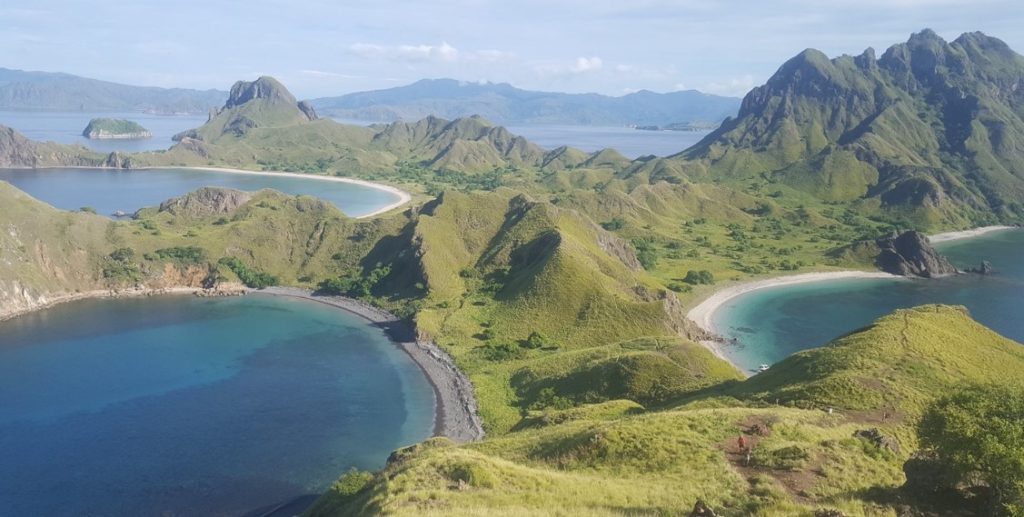5 min read
Indonesia is poised for continued economic growth, with a steady real GDP growth of 5.1%. Accompanying this is a critical need to address social and environmental issues brought on by the growing urban-rural divide and resultant income disparity.
The good news is that Indonesia is becoming a hotbed for socially impactful business practices to take off in the region.
Inclusive businesses (IBs) are for-profit organisations that deliberate incorporates the base of the pyramid in their value chains, providing sustainable livelihoods and enabling profits in the same effort. The largest sectors in Asia are Agriculture, Wellness and Tourism and Waste Management.
With growing recognition of IB as a concept and a newly minted Cabinet that prioritises the Sustainable Development Goals (SDGs), sound policies informed by the voices of Indonesia’s private sector will be pivotal in helping companies adopt IB practices.
Here are five policy recommendations overheard at a recent AVPN Indonesia Policy Workshop:
1. Policies encouraging international corporates to partner with local IBs can help expand their market reach.
For example, local designers in West Java have collaborated with IKEA to sell bamboo-based furniture to the company’s global consumer base. The downside is that this happens rarely as many IBs face challenges with reducing costs associated with logistics, transportation and storage. There is a role for government actors to facilitate smallholder product entry into the global value chain by addressing the hidden logistic and infrastructure barriers in high-impact IB sectors like agriculture, the creative economy and tourism.
2. Easing the barriers to social innovation allow creative, proven solutions to enter the marketplace.
Safeguarding intellectual property can be crucial for IBs to scale unimpeded. This is particularly important in the creative economy where intellectual property rights are fundamental in ensuring creative autonomy and credibility. Intellectual property financing also benefits a larger than proportionate number of women-makers as the creative economy is dominated by women entrepreneurs.
Taking steps to make intellectual property financing from banks more accessible, therefore, can encourage businesses to incorporate innovative IB practices into their value chain.
3. Solving the “Missing Middle” problem requires the government to think out-of-the-box.
Governments can help IBs become more bankable by lowering the bar for financing or by stepping up as guarantors (or enabling others to become guarantors).
CSR laws can also be formulated to call for more imaginative ways of distributing CSR funding for impact. Rather than being the chief investor of small businesses, the government can leverage other forms of co-investment by matching funds to catalyse more private sector funding. With all the buzz around green financing, it may be an opportune time for the Indonesian government to signal green sukuks (green bonds that confirm to Islamic principles) as a way forward for IBs to access funding.
4. Government should put in place infrastructure that complements private sector motivations for IB growth .
To encourage more credible lending and borrowing, there is a clear scope for Indonesian government to bring more transparency to private sector-driven lending platforms. For example, Mekar’s P2P lending platform works through Indonesia’s fragmented network of lending institutions to identify the safest local koperasis (local lending institutions) to channel financing from corporates and banks.
To make lending platforms like this more credible, the government can create a centralised database for all village-level funds to foster transparency and build trust amongst lenders and borrowers.
5. Mobilising on-the-ground action requires empowered local government stakeholders equipped with the right capabilities and skill-sets.
To connect big lofty SDGs to on-the-ground realities, we need to strengthen local systems. For example, the BUMDes is a form of government-recognised village-owned business entity that can catalyse IB practices at the localised level. By aggregating smallholders to exchange IB best practices, explore the types of financing available, and better leverage resources, BUMDES are important support infrastructure. More resources channelled to build the capacity of BUMDES will be crucial.
About the Inclusive Business Policy Workshop Series: Indonesia
The Indonesia IB workshop was held in Jakarta on 12 September and brought together 32 representatives from both the public and private sector. They include participants from Ministry of Village, Angel Investment Network Indonesia, Ministry of National Development Planning, Indonesia Creative Economy Agency, Investing in Women and Tropical Landscapes Finance Facility.
Discussions at the Indonesia workshop took a deep-dive into sectors like agriculture and the creative economy, while exploring implementation opportunities and challenges across national, provincial and village levels to advance the IB ecosystem.
Find out what are the similarities and differences with the Philippines ecosystem, and how you can leverage both economies.


















